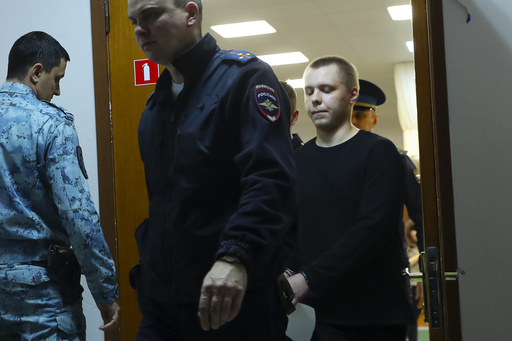
Moscow – A Russian national has been sentenced to 14 years in prison after being convicted of high treason due to a video he provided to Ukraine’s security services. This incident highlights the ongoing series of espionage cases related to the ongoing conflict between Russia and Ukraine.
The Volgograd District Court revealed that the individual, identified as Nikita Zhuravel, demonstrated disapproval of the Russian government’s political direction. He engaged in correspondence via the internet with a member of Ukraine’s security services and performed tasks for this representative, although specific details regarding these tasks were not disclosed.
Zhuravel is currently serving an additional sentence of three and a half years for an earlier crime involving the burning of a Quran outside a mosque, which he was sentenced for in February.
Prosecutors have claimed that Zhuravel recorded a video of a train filled with military equipment and aircraft during the year 2023 and subsequently sent this footage to an official within Ukraine’s security agency.
Human rights advocates are labeling Zhuravel as a political prisoner, arguing that he experienced physical abuse while in custody. Reports indicate that while he awaited trial for his previous charge, he suffered beatings at the hands of the 15-year-old son of Ramzan Kadyrov, who is the Kremlin-appointed leader of Chechnya, a predominantly Muslim region. This incident sparked public outrage when the elder Kadyrov shared footage of the attack on social media, applauding his son’s actions.
Despite the controversy surrounding Kadyrov’s conduct, federal authorities have not issued any critiques of him.
Since the onset of the war in Ukraine in February 2022, the number of treason and espionage cases has dramatically increased under President Vladimir Putin’s administration. This surge has affected a wide array of individuals, including critics of the government, independent journalists, and scientists, drawing the attention of various rights organizations.
The definition of treason in the country has been broadened to encompass the vague notion of offering “assistance” to foreign nations or organizations, which places anyone with foreign connections in a precarious position regarding potential legal repercussions.
